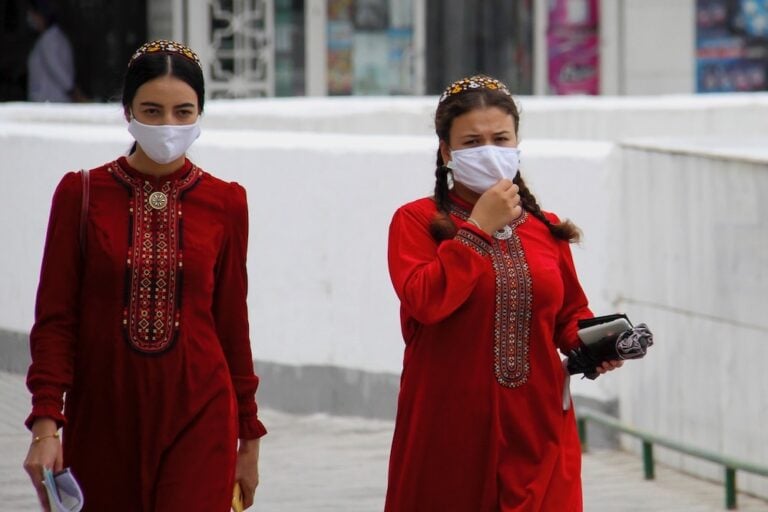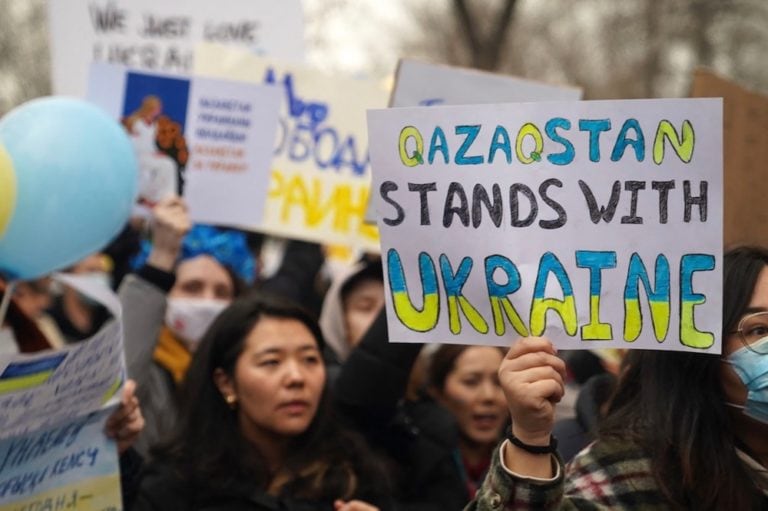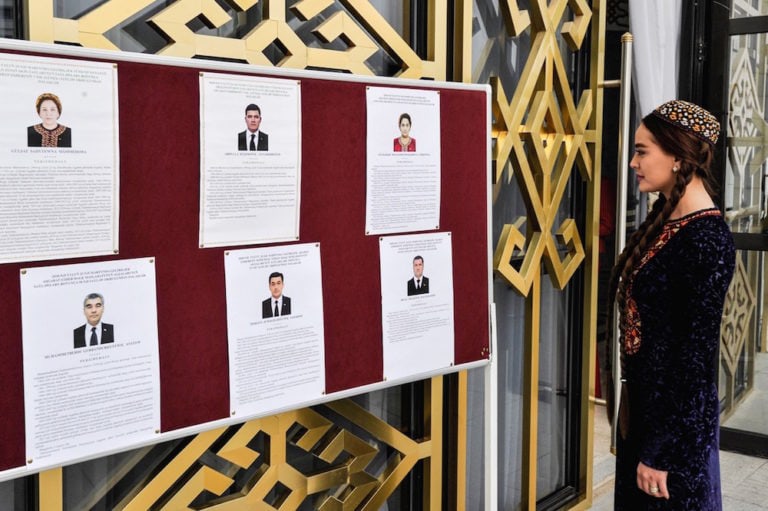(Freedom House/IFEX) – The following is an 11 January 2007 Freedom House press release: Turkmenistan Urged to End its Reign of Repression Washington, D.C., and Budapest, Hungary – Following the death of long-time dictator Saparmurat Niyazov, and prior to upcoming presidential elections, Freedom House today called on the government of Turkmenistan to initiate steps that […]
(Freedom House/IFEX) – The following is an 11 January 2007 Freedom House press release:
Turkmenistan Urged to End its Reign of Repression
Washington, D.C., and Budapest, Hungary – Following the death of long-time dictator Saparmurat Niyazov, and prior to upcoming presidential elections, Freedom House today called on the government of Turkmenistan to initiate steps that can at long last put Turkmenistan on a path toward greater openness and democracy.
President Niyazov died suddenly on December 21, 2006. Immediately following his death, the constitution was altered to allow Gurbanguly Berdymukhammedov, Deputy Prime Minister of Turkmenistan, to serve as acting president. Elections have been scheduled for February 11 and six candidates, including Mr. Berdymukhammedov, have stepped forward. None belong to the country’s political opposition. While the current government has made pledges to enact reforms, recent actions leave international observers highly skeptical.
“Turkmenistan has a long history of denying citizens their political and civil rights, and we urge the country’s current and future government to finally end this tradition,” said Jennifer Windsor, Executive Director of Freedom House. “The new government should concentrate increasing the political space for citizens, opposition parties and the media,” she added.
Acting President Berdymukhammedov has hinted at increasing Turkmenistan’s contact with the rest of the world by allowing for more student exchanges with the West and greater internet freedom. Nonetheless, Nations in Transit 2006, Freedom House’s survey on formerly Communist countries, points out a number of other issues that must be addressed. According to the survey, the Turkmenistan government has allowed for no political opposition; the media and internet are tightly controlled; and freedom of speech, assembly and association are severely restricted.
While the U.S. government has offered to provide assistance to the new government of Turkmenistan, statements pushing for real political reform have been few. After Niyazov’s death, the EU called for the establishment of democracy and adherence to the rule of law in Turkmenistan, but it is unclear whether this statement will be followed by concrete actions.
“The U.S. and the EU should use this unique moment in history following Niyazov’s death to push for democratic reform while the window is still open,” Windsor added. “Otherwise, we may be looking at another 15 years of darkness and repression for the people of Turkmenistan.”
Turkmenistan is included in Freedom House’s 2006 “Worst of the Worst” report, a compilation of the most poorly performing countries in the annual Freedom in the World survey, and is one of only eight countries that receives the lowest possible score (7) for both political rights and civil liberties.
Freedom House, an independent non-governmental organization that supports the expansion of freedom in the world, has monitored political rights and civil liberties in Turkmenistan since it became an independent country in 1991.
More information on Turkmenistan can be found at:
Freedom in the World 2006: Turkmenistan http://www.freedomhouse.org/template.cfm?page=22&year=2006&country=7078
Freedom of the Press 2006: Turkmenistan http://www.freedomhouse.org/template.cfm?page=251&year=2006
Nations in Transit 2006: Turkmenistan http://www.freedomhouse.hu/nitransit/2006/CountrySummariesNIT06.pdf


